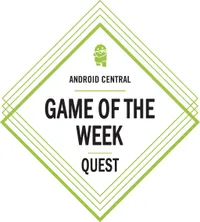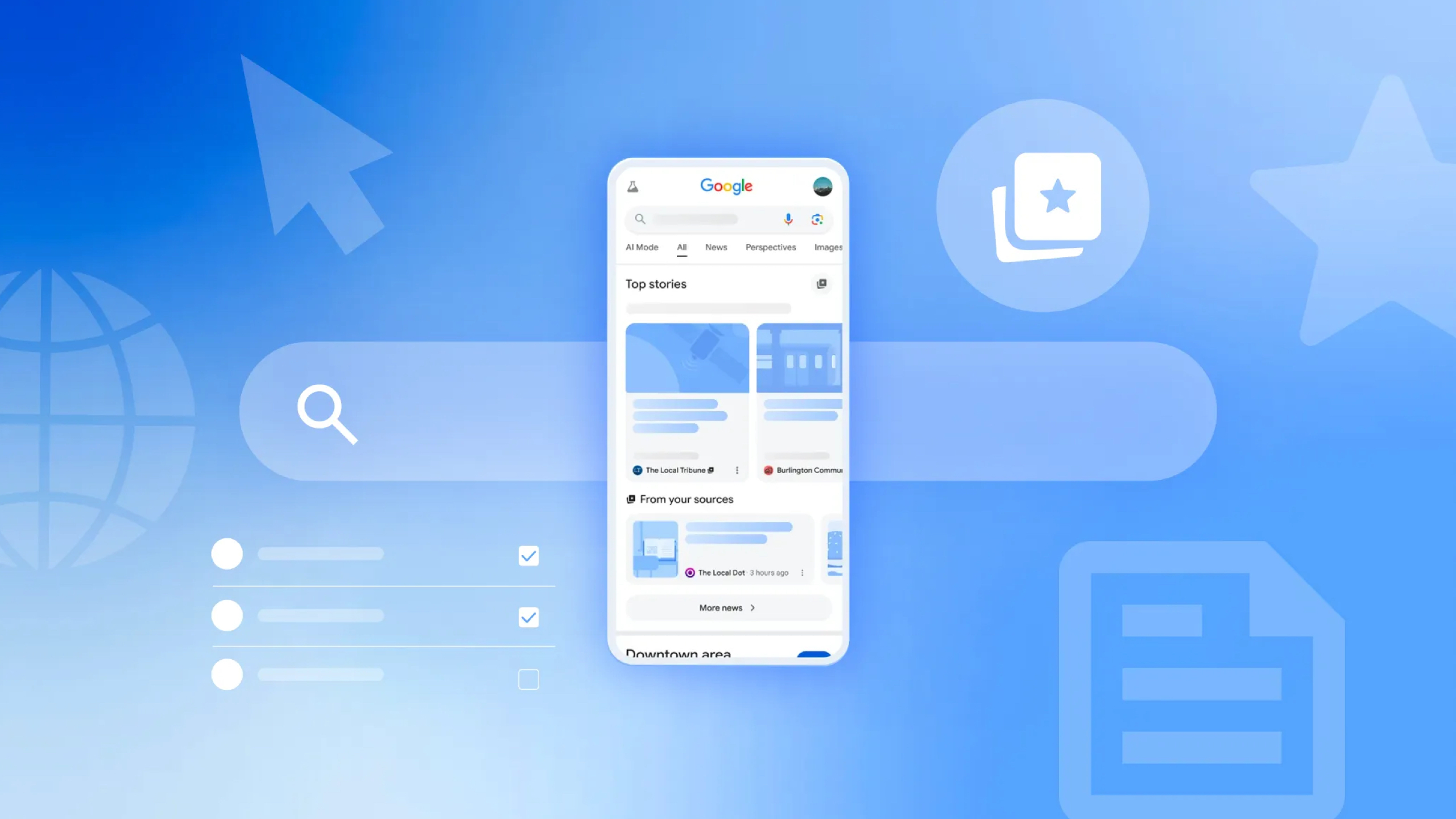The joy of Gorilla Tag for Oculus Quest proves Meta should do more with App Lab
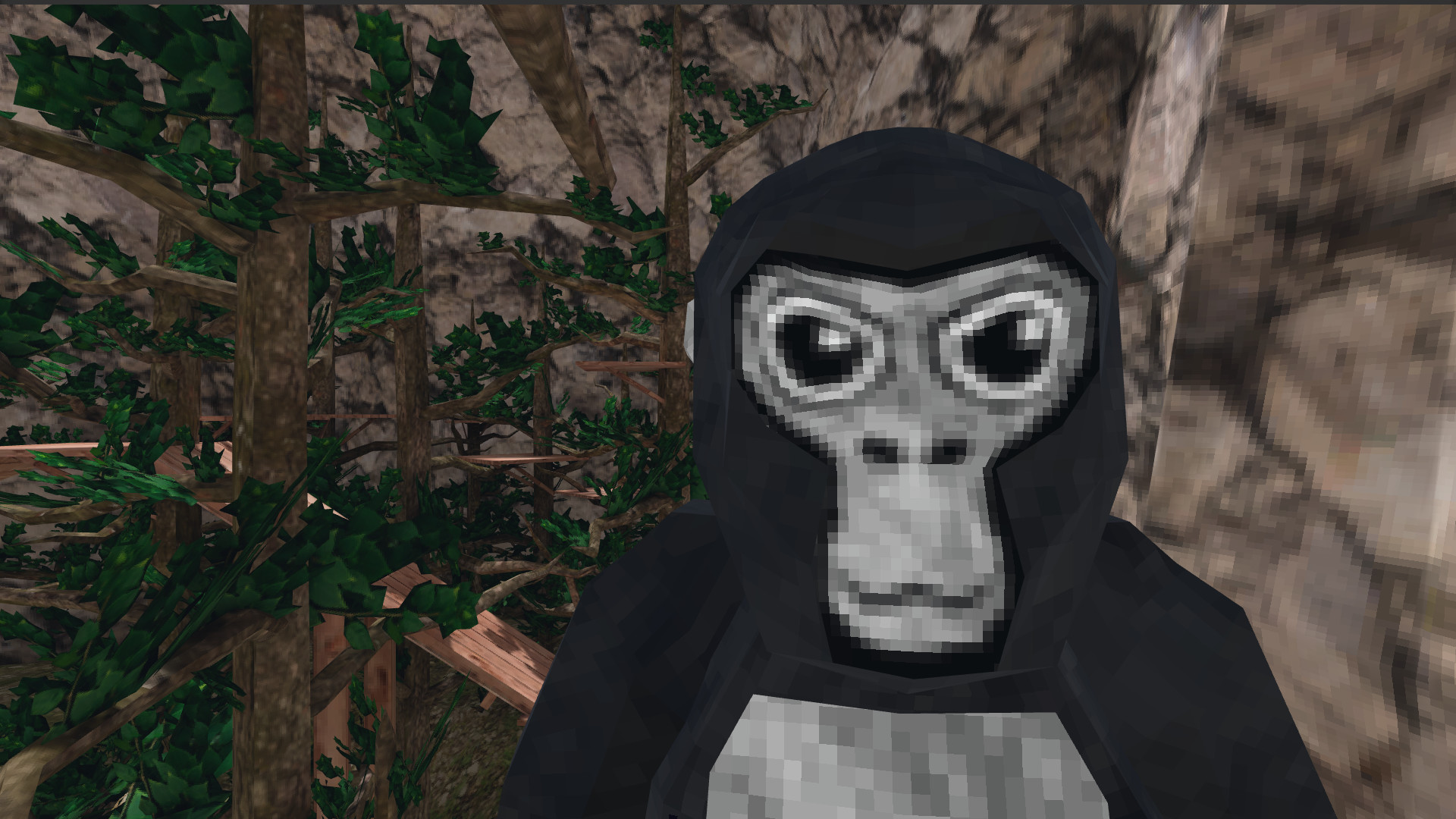
Update Dec 2: Gorilla Tag is finally coming to the official Quest store on December 15!
For some people, Gorilla Tag needs little introduction. By the end of 2021, Gorilla Tag had hit 1.5 million unique players. It has a 4.7/5 rating on the Quest Store with 34 thousand ratings, while even Beat Saber only has 43 thousand. And that's made even more impressive by the fact that it's on App Lab, meaning Meta does its very best not to acknowledge its existence.
For those who haven't tried it, you may look at this low-res indie title by LemmingVR and wonder what the fuss is about. That was my initial reaction to Gorilla Tag, which looked charmingly simple but nothing to write home about. Especially when my first encounter with the community was off-putting, to say the least.
But it's the physics-based simplicity that works in the game's favor, with mechanics anyone will quickly understand but require consistent play to master. If you can get past the poor graphics and the toxicity you'll encounter in any social VR space, Gorilla Tag is a game you can sink dozens of hours into.
Our Oculus Quest Game of the Week column highlights recent Meta Quest titles, indie gems, App Lab up-and-comers, or cool sideloaded mods. Games that we didn't have time to review but deserve recognition.
The basics
To play Gorilla Tag, you clutch the Oculus Touch controllers and make a swiping or shoving motion to mimic the knuckle-walking movements of a gorilla. You can use the grip/trigger buttons to grab hold of branches to fling yourself away, or pinch and thrust to climb up objects quickly.
Aside from the Casual mode with no objectives except to explore and chat with fellow players, Gorilla Tag has only two official game modes: Infection and Hunt. In Infection, a Lava Monkey chases the other players, who also become Lava Monkeys if tagged; once everyone is caught, the game ends. In Hunt, you pursue a specific player while someone else pursues you; once you're caught, you become an Ice Monkey with slower movement speed.
Since the game's been out in Early Access for over a year, players have found ways to entertain themselves with "minigames," which essentially means starting a private room and choosing custom rules like hide-and-seek. Or you can join the Competitive mode to take on Gorilla Tag veterans.
Get the latest news from Android Central, your trusted companion in the world of Android
But you'll want to stick to standard game modes for your first play sessions at least, or even jump into your own private lobby alone or with a friend to practice your skills.
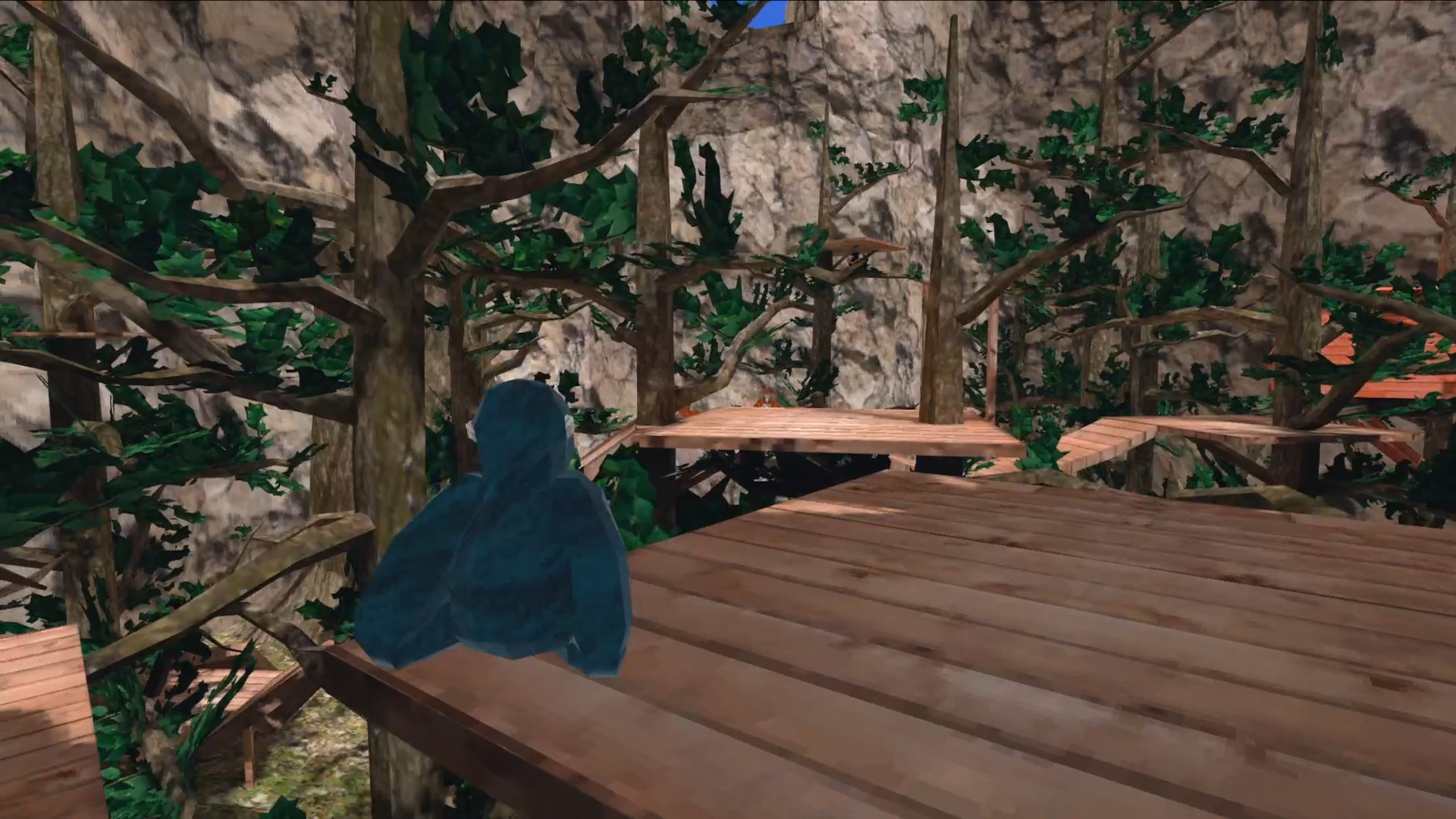
The game has five main environments: Forest, Cave, Canyon, City, and Mountain. Each map has different characteristics that'll encourage you to master different movement mechanics. City has an obstacle course, Canyon relies more on wall-running while Forest is more about climbing, and Mountain was the first to add slides.
You can change your gorilla's color, but as a free-to-play game you'll need to find or pay for "shiny rocks" to buy cosmetics and make your character stand out.
Gorilla Tag has a huge community on YouTube, Reddit, and Discord that can help you understand anything you're having trouble with. But it's also straightforward enough that anyone can dive in and play. You may want to invest in some new hand straps, though, and be careful of bruised fingers and smashed controllers if you don't have a large enough play space for a full Guardian.
What Gorilla Tag is like
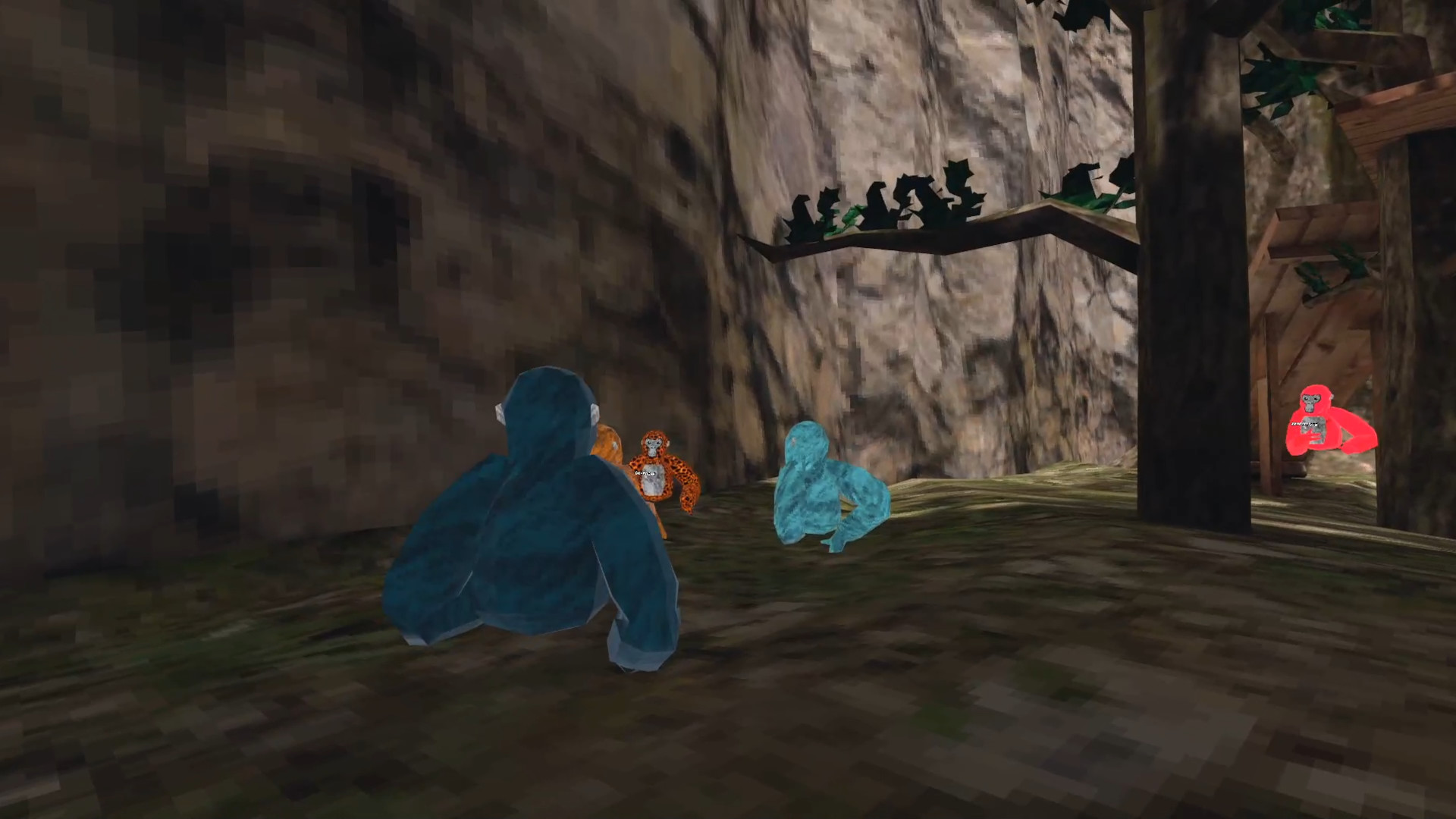
Gorilla Tag drops you into a short tutorial area with no prompts except for a couple of arrows pointing you in the right direction. I figured out the basics fairly quickly and knuckle-dragged myself slowly but surely to a cliff-edge, where I came into earshot of my fellow players in the forest below.
Below is an exact transcript of the cacophony of preteen voices that greeted me:
"God is great! God is great! God is great!"
"Hey guys, wanna hear the best singing in the world?" (Screams like a prepubescent Tarzan with a throat cold)
"Stop following me! I'm just an innocent peanut butter! Get off me!"
At that point, I signed off Gorilla Tag, tried to remember what I was like as a twelve-year-old, and played some Tetris Effect as a palate cleanser.
I eventually managed to steel myself into trying Gorilla Tag again, crawling and bunny-hopping past preteens babbling about minigames. Trying my hand at a few rounds of Hunt and Infection, I found myself unable to outrun or catch anyone no matter how hard I swung my arms, and got to enjoy some mocking teasing from players who had obviously spent a lot longer mastering their "monke" skills than I had.
I turned to some extremely helpful YouTube videos like the one above from VMT, which guided me on what my body movements should look like. Suddenly, I was no longer slow-hopping like an astronaut and flinging myself uselessly from trees while trying to climb them.
As with Rec Room, VR Chat, and other social experiences, I struggle with social anxiety stepping into these spaces. But outside of my initial negative impressions, I did have a blast throwing myself around the world and feeling the burn in my arms over time. Especially when I ended up in queues with people slightly closer to me in age, so I didn't feel like I had crashed a kid's birthday party at Chuck E. Cheese.
Push past whatever weird encounters you have — or just mute your fellow players until you join the Competitive servers — and Gorilla Tag could suck dozens of hours of your time away before you even realize it!
What Meta could do better with App Lab
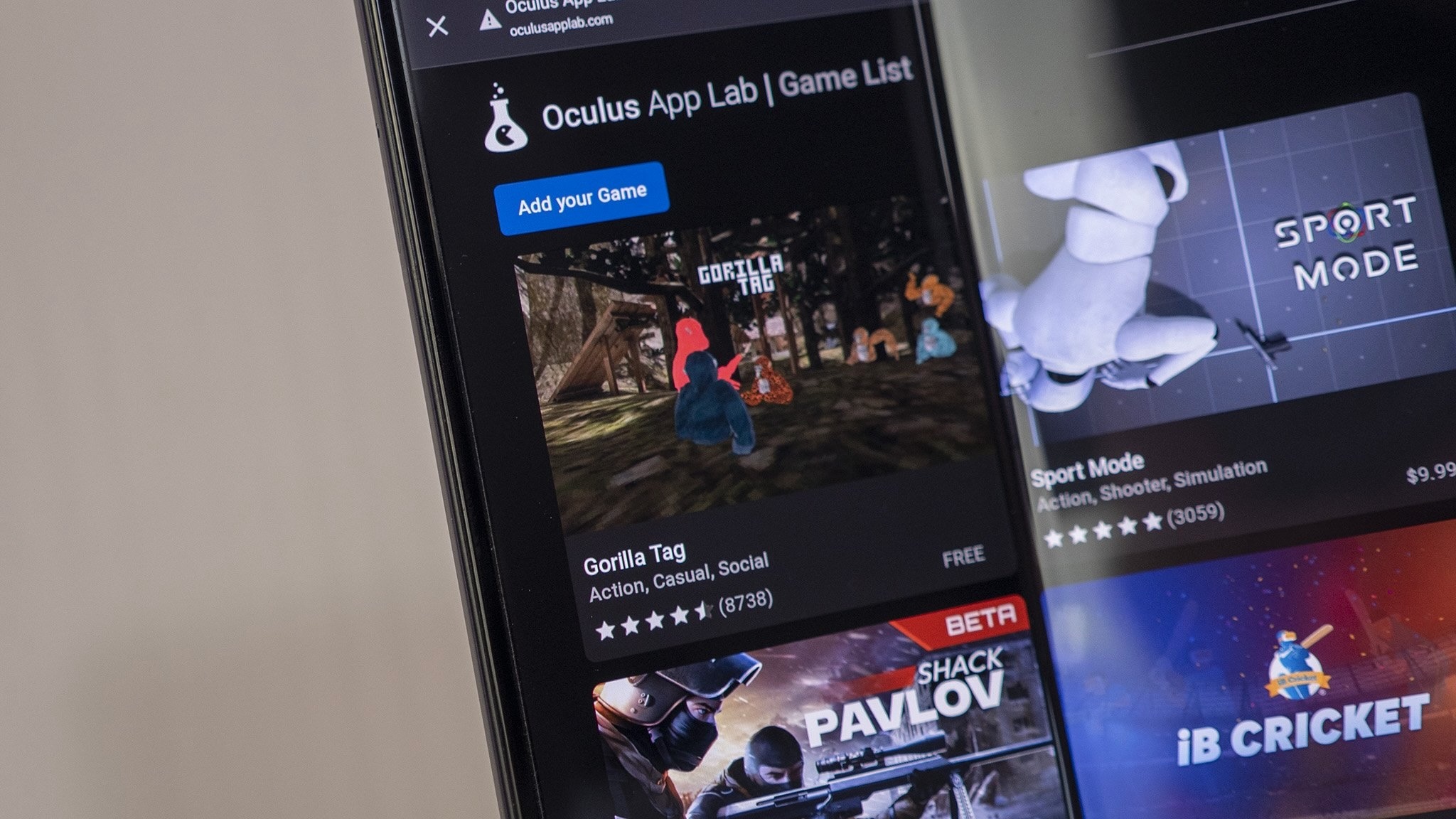
The Quest Store is full of fantastic experiences by small developers whose games wouldn't get as much traction on a traditional gaming console. But many of them can't pass Meta's stringent quality requirements and end up on App Lab, which means you can't easily find them unless you have a direct link or know to look for it. There's no discoverability, grouping by genres, and so on. The third-party App Lab Games List helps a bit for discoverability, but you can bet a lot of Quest 2 gamers don't know it exists.
On the one hand, Meta's choice makes sense from a business standpoint. App Lab hit nearly 850 games within a year — more than double the number of "official" Quest games — and most are free or very cheap. If App Lab games appeared in official Quest Store results, they could end up overwhelming the "most popular" or "top selling" results thanks to sheer number of downloads, which hurts big studios and Meta's partners.
On the other hand, the App Lab is full of promising, experimental games from new VR devs that could evolve into something more with enough community support. You need only look at YouTube and Twitch to see that gamers love watching and playing low-res, schlocky horror games, indie knock-offs, and early-access titles. Our list of the best App Lab games is a bit outdated, but you'll find plenty of excellent amateur experiences like Gorilla Tag that deserve our attention.
Plus, the combo of cheap prices and small download sizes means you can fill up your limited hard drive with games instead of bankrupting yourself on $40 games. With plenty of Quests gathering dust on shelves, Meta only benefits if it gives people more reasons to keep playing.
Maybe Meta can highlight an App Lab pick of the week or a "most popular App Lab games" category on the official store. Or it could fully incorporate them into the store while leaving the warning pop-ups, and trust gamers to figure out for themselves which experiences are worth buying.
Either way, it makes no sense Meta has a killer app for the next generation of VR fans in Gorilla Tag, but doesn't acknowledge it.
Gorilla Tag
Chase after your fellow gorillas using nothing but your arms and hands, shoving off of surfaces to leap or swing off of branches. Just get ready for a workout and be careful not to hurt your fingers!
Download on Quest Store | Steam

Michael is Android Central's resident expert on wearables and fitness. Before joining Android Central, he freelanced for years at Techradar, Wareable, Windows Central, and Digital Trends. Channeling his love of running, he established himself as an expert on fitness watches, testing and reviewing models from Garmin, Fitbit, Samsung, Apple, COROS, Polar, Amazfit, Suunto, and more.
